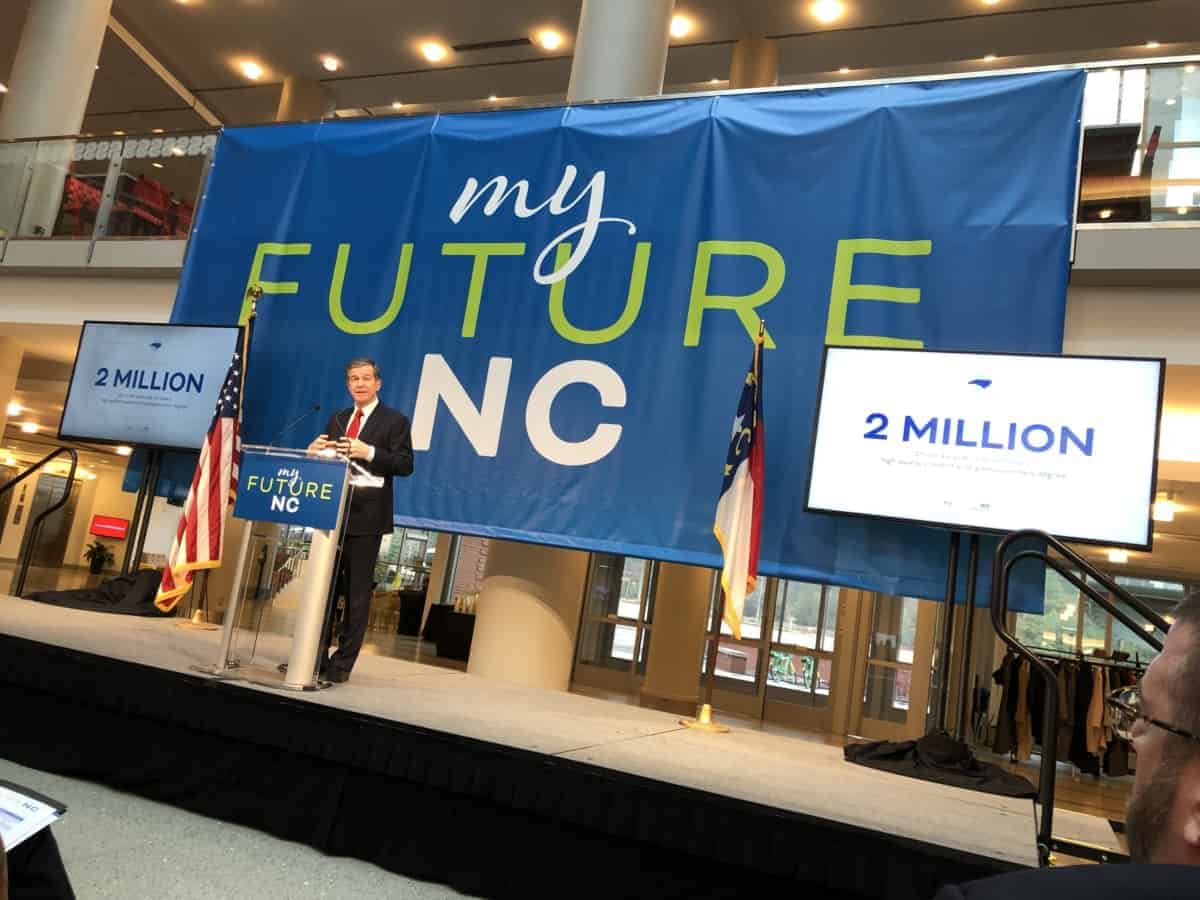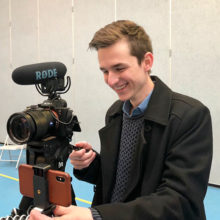On Wednesday the myFutureNC Commission announced its postsecondary attainment goal for North Carolina. By 2030, the commission said, the goal is for 2 million 25- to 44-year-olds to receive a high-quality credential or college degree — about two-thirds of this age group.
Wondering what attainment is?
The myFutureNC Commission was formed to establish a shared attainment goal for North Carolina. Job opportunities in the state are increasingly likely to require some sort of postsecondary attainment, which refers to education completed after high school. Postsecondary attainment includes college degrees and high-quality certificates that help people get jobs. In 2016, about 47 percent of working-age adults in the state had some form of postsecondary attainment.
“This is more than a vision,” said Dale Jenkins, CEO of Medical Mutual and myFutureNC co-chair. “It’s a real and required imperative. Today, we have a goal — one that’s absolute, ambitious, and attainable. Now, bold new plans and even bolder actions across education and business are necessary.”
Before making its much-anticipated recommendation, the commission spent months in meetings and listening sessions across the state, hearing from people involved with all levels of the educational pipeline. The commission is comprised of influential state leaders in business, government, education, faith, and nonprofit sectors. EducationNC’s Reach NC Voices project assisted with the facilitation of the listening sessions, and EducationNC CEO Mebane Rash served as a subject matter expert on the P-12 committee.
Here is the livestream so you can watch the announcement:
Many states have already established shared educational attainment goals, but North Carolina had not until today. But how do we get there?
To ensure progress is being made toward this goal across the educational continuum, myFutureNC recommended focusing on several key performance indicators. These include enrollment in high-quality pre-Kindergarten, the share of ACT test takers with a 17 or above, the NAEP (National Assessment of Educational Progress) proficiency of fourth and eighth graders, K-12 chronic absenteeism rates, the share of eligible high schoolers completing FAFSA, and various completion rates.
The commission also recommended tracking specific labor market outcomes. These include the overall labor force participation rate, the share of adults with a family income at or above a living wage, and the supply and demand of graduates in various fields. Keeping an eye on these indicators is meant to ensure that education efforts are positively impacting the state and its labor market.
These efforts to increase educational attainment have enjoyed bipartisan support from education leaders and policymakers.
“Our educational sectors are united in this attainment goal,” says Peter Hans @NCCommColleges @myFutureNC. pic.twitter.com/MIAscTev7w
— Mebane Rash (@Mebane_Rash) February 20, 2019
“I applaud the myFutureNC Commission for developing such an ambitious goal,” said Senate Pro Tem Phil Berger, R-Rockingham. “I look forward to working with the commission and other stakeholders to ensure that North Carolina continues to have one of the most well-trained workforces in the nation.”
Governor Roy Cooper said increasing NC’s attainment will help its labor force keep up with other states.
“To keep North Carolina competitive, we must help more of our students get the skills and education needed for the jobs of today and tomorrow,” Cooper said. “That’s why I support the myFutureNC Commission goal to develop a better educated North Carolina workforce and look forward to working together so that our state and its people can achieve our full potential.”
Here is the final report:
Next steps are @myFutureNC commissioners are going back out across N.C. to explain to all why support and input is critical, and there will be an in-depth look at state funding of education and whether the dollars are being spent well relative to the attainment goal. pic.twitter.com/XOqvGPHL52
— Mebane Rash (@Mebane_Rash) February 20, 2019



